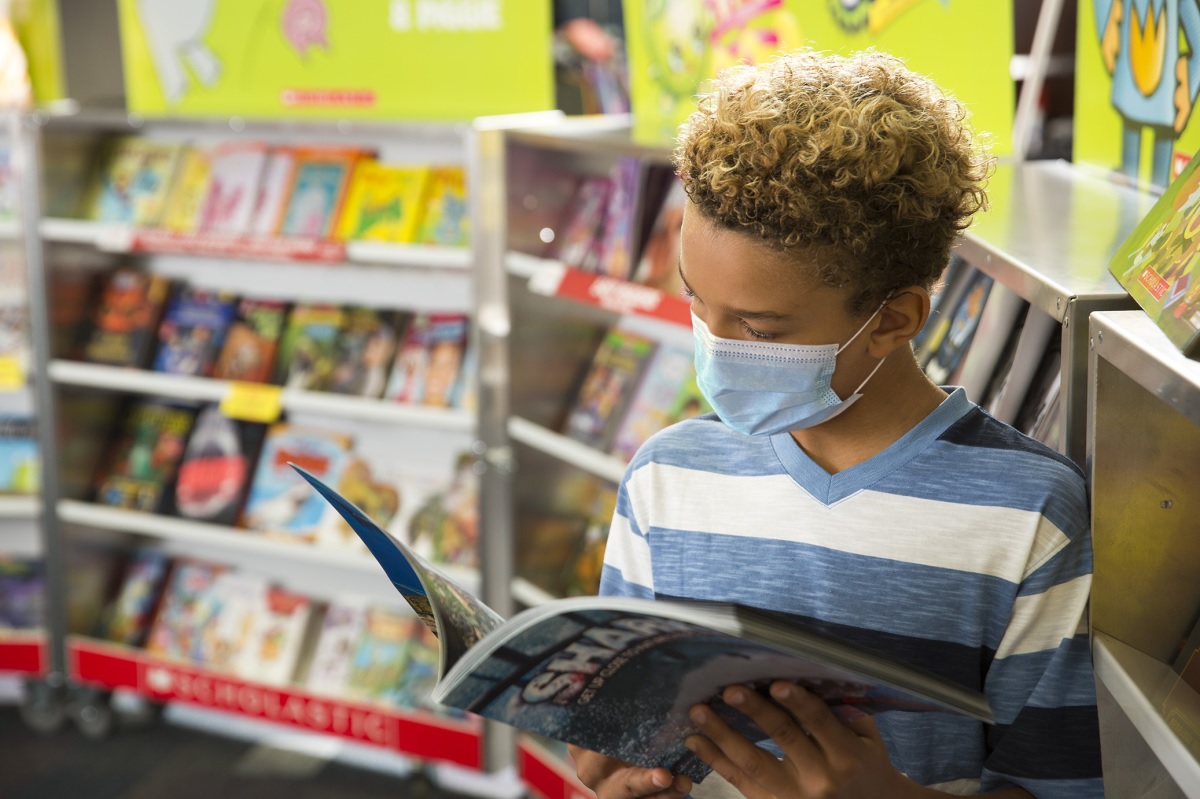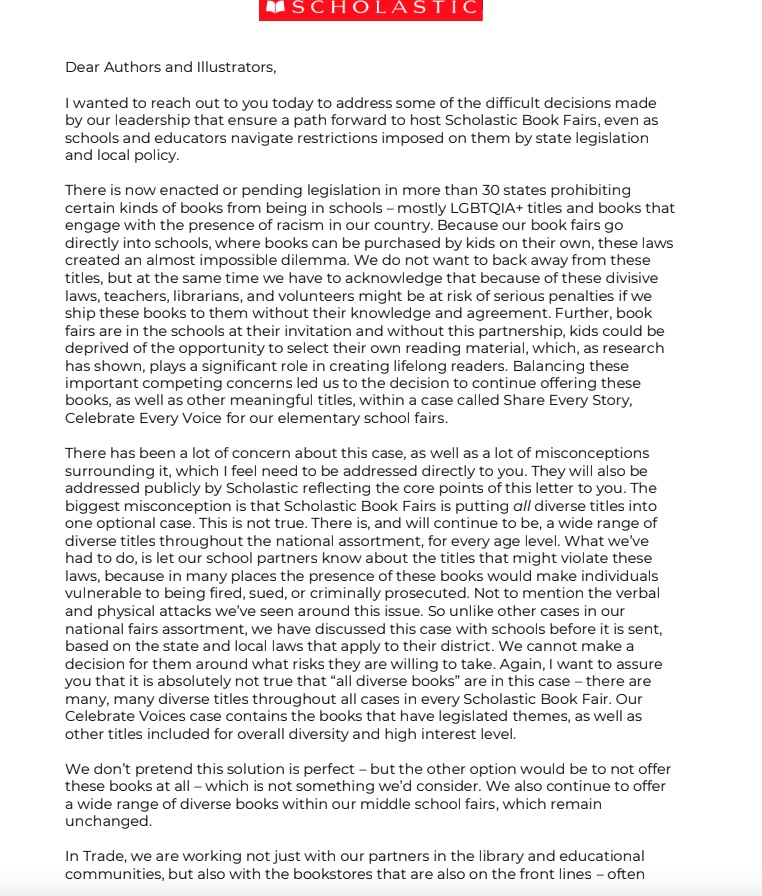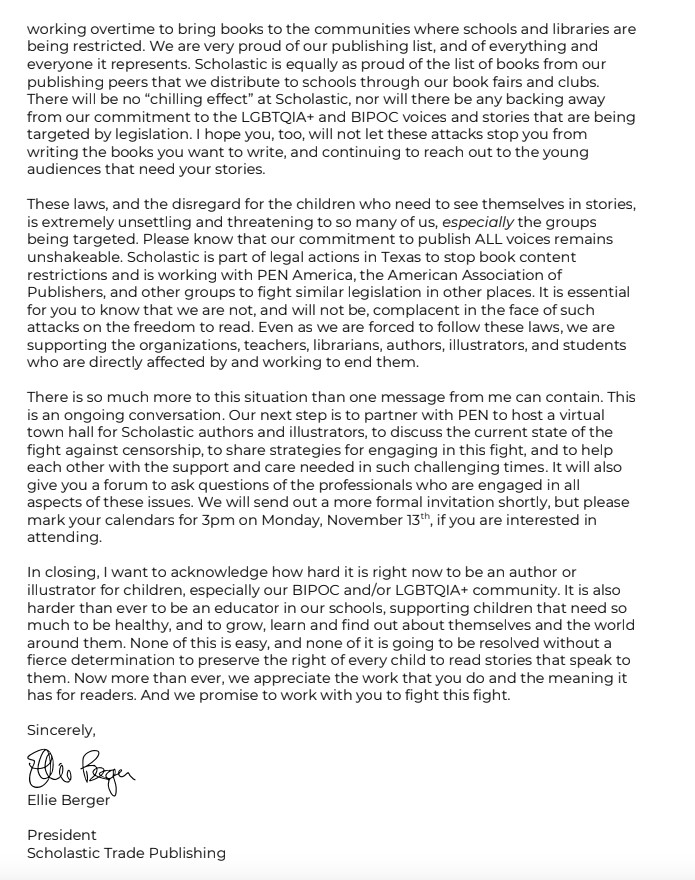Scholastic’s Response to Authors and Illustrators on Diverse Book Restrictions Only Raises More Questions

It’s been a rough few days for Scholastic, following the revelation that the company was pre-emptively restricting diverse books from their 120,000 book fairs across the United States. Public outcry online came to a head last week with The Witch Boy and The Deep Dark creator Molly Knox Ostertag speaking out against the policy at a Graphix NYCC 2023 party on Thursday. And as we’ve recently learned, authors and illustrators working with Scholastic received their own response to the news in a letter specifically sent to them last Friday.


The letter was shared with The Mary Sue by a source asking to remain anonymous. It goes into more detail than the public response Scholastic posted on October 10, confirming what librarians and other school officials reported about needing to opt-in before they receive diverse books from the Share Every Story cases at their school fairs. The letter further suggests that the rise of local laws in 30 states banning these books and the safety of teachers and librarians are primary motivating factors for this recent change. For further context, The Washington Post recently reported that only 11 people were responsible for 60% of all book bans for the 2021-2022 school year.
Which begs the question: Why is Scholastic caving to the whims of a few bigots in a very vocal minority? With record profits from 2022 onward in the hundreds of millions to billions worldwide, Scholastic is not exactly a small independent publisher that can’t afford these challenges. Marginalized authors are dealing with plenty of challenges to LGBTQ+ material and to books that address systemic racism as-is without publishers pre-emptively banning their books for them.
Does Scholastic care more about diverse books or profits?
This isn’t the first time Scholastic’s come under fire for their approach to “controversial topics,” and not even the first time it’s happened this year! In April, author Maggie Tokuda-Hall went on record detailing how Scholastic wanted to license her (and Yas Imamura’s) 2022 book Love in the Library, but only if she removed an entire paragraph on systemic racism from the author’s note.
Scholastic CEO Peter Warwick went on to issue an apology following the mounting pressure on social media and promised to restart the conversation with a better offer but that hasn’t stopped authors from having some understandable skepticism to how Scholastic is currently operating.
Scholastic has been dealing with some real hits to their bottom line over the last few years as well, with school districts in Florida and Texas canceling book fairs and sales of Scholastic books in 2022 for reasons you might expect, citing “age-appropriate” concerns. The Scholastic Corporation is a publicly traded company, so I suppose it’s not surprising that company shareholders would see a lack of sales and make moves that involve fewer “risks,” even at the expense of authors and readers alike.
According to teachers and librarians, the books they receive from Scholastic’s Share Every Story cases still come with warning labels in case they came by mistake, and those same diverse books don’t feature in the book fair catalogs sent to parents. And while the letter to authors and illustrators frames this as a conversation Scholastic is having with schools to address the alleged “risks” of diverse books, the reality sounds more like self-censorship and banning books before they even have the chance to reach the kids that need them.
(featured image: Doug Scaletta/Scholastic)
Have a tip we should know? [email protected]
